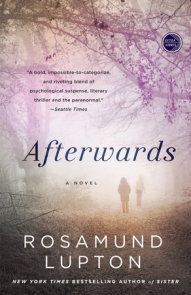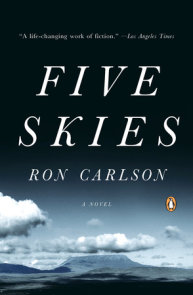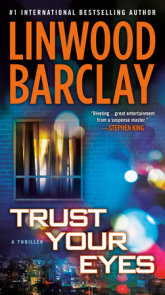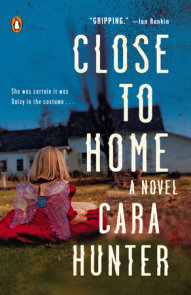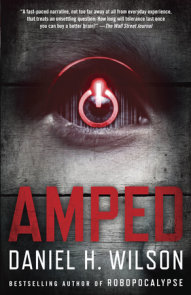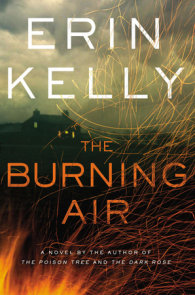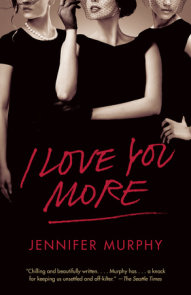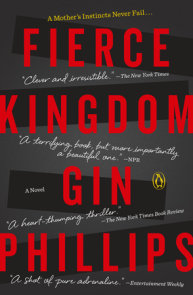READERS GUIDE
Questions and Topics for Discussion
INTRODUCTION
With The Signal, Ron Carlson has written a spare, powerful tale of love gone wrong and stakes raised and claimed, all set against the soaring backdrop of the Rocky Mountains. By turns a love story, a paean to the beauty of the West, and a deadly cat-and-mouse game, The Signal combines the velocity and punch of pulp crime writing with the soulfulness of a modern-day cowboy romance. It is the kind of novel that only Ron Carlson, with his combination of toughness and lyricism, could write.
Mack and Vonnie’s marriage has disintegrated, but for one last time they will engage in their decade-old ritual: a September fishing trip to the remotest mountains in Wyoming, “the wild rough top of the world.” Just out of jail after a year of hard living and bad decisions, Mack is hoping against the odds to rekindle their romance. He also has a secret reason for being in the mountains, a dangerous errand that could mean everything for his future. For her part, Vonnie has moved on to another life, but she is a woman of her word, and she has given hers to Mack.
With this deceptively simple setup, Carlson launches the reader on a ride that works as both thriller and romance, both narrative and lyric. The interplay between Mack and Vonnie as they embark on their trip is sensitive, prickly, with Mack pushing and Vonnie retreating; the reader senses the history of shared intimacy and pain between the two. Carlson’s handling of the dynamic is beautifully controlled. He manages to make us feel the ache of Mack’s remorse and longing while simultaneously sympathizing with Vonnie’s desire for stability and freedom. When, about two-thirds of the way through, the novel suddenly takes a darker turn, Carlson’s calm, precise language serves to heighten the reader’s sense of apprehension as Mack and Vonnie’s trek turns unexpectedly deadly. What remains after the novel has finished its sprint to its shattering denouement is a tentative peace, a sense of renewal and possibility that feels bitterly, poetically hard-won.
Underneath The Signal’s deft portrayal of a relationship in crisis and the thumping action sequences, however, lies a profound subtext about the decline of the American West and the fallout that the contrast between cowboy iconography and the harsh reality of contemporary economics has on men like Mack. Mack’s father was able to convey the trappings of a bygone world, and live by a superannuated “code,” because he had the personal charm to be able to lure tourists and rich cowboys manqués to his ranch. Even so, he was forced to pander to outsiders to keep heritage alive. Mack, on the other hand, lacks the charm or the patience to keep the ranch even as a guest getaway, and so depends on drug-running and bird-dogging. In the end, he can’t even do that right. Only through love can men like Mack find redemption, and even then, it comes at a high price, if it comes at all.
ABOUT RON CARLSON
Ron Carlson has written four story collections, two novels, and a young adult novel. His stories appear regularly in Harper’s, The New Yorker, GQ, Esquire, Playboy, and Best American Short Stories. He is the director of the graduate fiction program at the University of California, Irvine, and lives in Huntington Beach, California.
A CONVERSATION WITH RON CARLSON
Q. You write with great descriptive clarity about horseback riding, fly fishing, and camping. Are these skills you learned in your own youth? How do you go about incorporating the technical details of these practices into the narrative as a whole?
The short answer is yes, but the real answer is that I did learn a good deal about these things and the out of doors when I was a kid growing up in Utah, and I developed some skills and became a fair fisherman and an ardent camper, but of course when you turn around to write something, there is the chance of improving your abilities—of those of Mack in my book. I can’t fish as he does. On incorporating these details in the narrative, my take is that these details are the narrative. When Mack remembers how his father took him fishing, that page doesn’t serve the story, it is the story. I love small real things that unfold as I write them.
Q. The landscape of the Wyoming mountains seems like a character in itself in your novel. How do you approach the challenge of writing about country? Are the landscapes in The Signal real places? Are they written from memory? Are they based on photographs, or other research?
The landscape is written from my generous and unreliable memory and it has me conflating places I have been, moving the lake or the mountainside. The research in this book was primarily first hand and consisted of years of backpacking trips in three mountain ranges, and the book contains all sorts of real places I’ve been along with some weather I’ve known, but all of it written through the prism, as I said, of memory. Memory and imagination are both fabulous, if unreliable, forces.
Q. The wonderfully tactile and sensual descriptions of food, land, and woods are reminiscent of Ernest Hemingway’s story “Big Two-Hearted River.” Do you consider Hemingway an influence? Do you have any other immediate influences or predecessors from whom you learned or borrowed especially?
I always loved Hemingway, the way the words got very close to the things and the way reading his outdoor stories it made me want to go find my sleeping bag. I want in my books to write closely so that the sensual moment can be evoked and I find some of that in so many writers: in the stunning dialogue in Grace Paley, and the sharp, canny observations of Ann Beattie, and the imagery and language of Cormac McCarthy, to name three of three dozen.
Q. Mack is in some ways a deeply flawed man, with a history of violence and deception that sets him apart from more straightforwardly admirable or identifiable protagonists. What draws you to create such a character? Do you worry that some readers will find him unsympathetic? Do you have a personal identification with a protagonist like Mack, that is, could he be in some way an alternate or imaginary version of yourself?
I like Mack in the way that he does have a shadow. He has the dimension of the damage he’s known, and in this story he is, by things he is trying to do well, looking his hard days right in the eye. I don’t know if he is a version of myself except in the way that all of my characters are. I do my best to sit in every chair in a story and to speak and act from each position with as much empathy as I can muster.
Q. This book seems like it would make a terrific movie, with a compelling romance at its core and an action-packed denouement. Even the part titles like “Day Three” have a cinematic quality. Has there been any interest in filming The Signal? How do you feel about the idea of your book being made into a movie?
I see what you are saying, but the book unfolded for me like a story, probably one of my most fundamental. And though there were parts that I absolutely saw as I wrote and the places felt real (and are real for me now), I didn’t conceive of the book as a film. I always worry when I see campsites in movies because the fires are so easy and perfect and there is always that log. If someone films this book, I’ll want the campsites to be genuine.
Q. You’re perhaps best known for your short stories, and have even written a book about writing short stories. What is the difference, for you, between writing stories and writing a novel? In the past you have talked of being “swept away” and “happily taken” by the challenge of the novel? Do you still feel that way?
This is a hard question; and I’ve been asked it a lot in the last year. I know for sure I love both forms and that when I’m in a story (as I am this week) or writing a novel, I go into it all the way—submerged. Nothing is ankle-deep and walk across; it’s all dive in—over my head—and hope to find out. Both the short and the long form get all of me. I have another novel underway.
Q. D. H. Lawrence famously wrote that “the essential American character is hard, isolate, stoic, and a killer,” all characteristics that apply to Mack. Does Lawrence’s statement reflect your view of the American character? Do you ever write from a “softer” point of view?
I love this quote and I see that too many filmmakers have read it. I don’t think of Mack as a “killer.” I think he made bad choices and mistakes and created harm that lead to harm, but that he would only kill when cornered. There are some large and stark events in this book and what I wanted as a writer was to earn them. We have gratuitous violence and are inured to it. I wanted Mack to solve his problems with everything else possible before he turned to violence. Your question about writing from a softer point of view is also a good one, and the answer is yes or double yes. My stories are full of men and women who hurry to be kind, even to where they sometimes trip.
Q. Authenticity seems to be a big concern in the book. Mack directs a lot of scorn at poseur dilettantes who come to the ranch with ninety-dollar shirts and expensive gear, but who lack know-how. Is this a feeling based on personal animus? Would it be fair to say there is a class awareness at work in The Signal? Do you personally feel possessive of the heritage of the West?
Oh my heavens, I’ve been caught out. I was born in Logan, Utah, and I was raised in Utah where I learned to fish and camp and ski, and I have seen the West developed and I do resent it. I know that’s an idiot’s pleasure, but still. I wanted this book to celebrate the wild and reveal, even obliquely, its redemptive and salubrious effect. I think Mack’s resentment may be my own, and I know his deep regard for remote places is my own.
Q. Mack conforms to “a basic pattern of American literature in submitting his moral system to the test of extremity,” in the words of the critic Robert Warshaw. Do you regard your writing as a variation on this basic pattern? Do you consider your fiction an exploration of morality? Do you consider yourself a part of any specifically Western tradition or anti-tradition?
I am a Western writer, but a writer first, and that means that again and again in stories I will be sending my characters into moments that test them. As a teacher I have a drawing for this that I scrawl on the board every term of a huge cauldron bubbling over a raging flame (plot) and then the characters plunging therein. I can’t draw, but the point is made. In The Signal, Mack and Vonnie go into the woods. That says it all.
Q. In a 2006 interview you said: “I have always tried to say what I mean in my stories or what I think the character might mean, and I have tried to keep it simple,” which almost sounds like something Mack or one of your other characters would say. So much fiction these days is aggressively not simple, laden with irony, reliant on postmodern or distancing effects. Do you regard yourself as a purist, or a throwback, or traditionalist? Is there any writing that differs substantially from your own that you admire?
I’ll take throwback, thank you. I like a story, and my work goes here and there, but at its core every time is a story: something that happens in time that matters to someone. I want my stories to be convincing and if sometimes they are puzzles I want them to be honest puzzles, human conundrums, not word games. I admire a lot of writers whose prose varies from my own, the tone in Bellow, the sentences in Nabokov, the patience of Alice Munro.
DISCUSSION QUESTIONS










